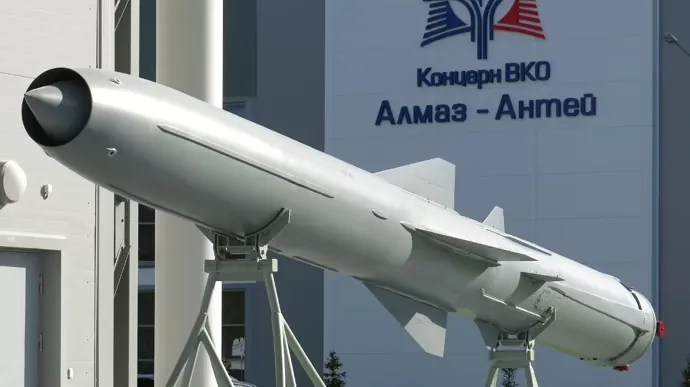
Russia and Iran Team Up to Arm Houthis with Advanced Cruise Missiles – A Potential Maritime Crisis?
2024-09-26
Author: Ting
Introduction
In a striking new development, reports from Reuters indicate that Russia, with the aid of Iran, is engaged in covert negotiations with Yemen's Houthi rebels to supply them with P-800 Oniks (Yakhont) anti-ship cruise missiles. This revelation comes from Western and regional sources and suggests that these discussions have gained momentum during a pivotal time in the Middle East.
Background
Sources state that these clandestine talks began under the leadership of former Iranian President Ibrahim Raisi, who sadly passed away in May. It's reported that representatives from Russia and the Houthis have convened twice in Tehran this year, with more meetings on the horizon. However, as of now, Russia has yet to make a definitive commitment regarding the delivery of these missile systems.
Potential Capabilities of P-800 Oniks Missiles
The P-800 Oniks missiles boast an impressive range of 300 kilometers, which could significantly boost the Houthis' capabilities to target commercial shipping vessels and pose a direct threat to both US and European naval forces operating in the Red Sea. Experts are raising alarms that the incorporation of such missiles into the Houthi arsenal would not only enhance their accuracy but also escalate the risks associated with international maritime routes, potentially leading to heightened tensions in an already volatile region.
Strategic Implications
Interestingly, this move by Russia appears to echo past actions where similar missile systems were supplied to Hezbollah, raising speculation that this potential transfer could be a strategic counter to discussions amongst Western nations about extending Ukraine's reach with long-range weaponry to strike deep within Russia.
Houthi Denials
In a counter-response to inquiries from journalists regarding this situation, Houthi spokesperson Mohamed Abdel-Salam denied any involvement in these negotiations, seemingly attempting to distance the group from any impending escalation.
International Reactions
This precarious situation aligns with a statement made by Russian President Vladimir Putin in June, suggesting that Russia might retaliate against Western military aid to Ukraine by equipping regions vulnerable to Western interests with advanced weaponry.
Recent Developments
Moreover, reports from CNN indicate that Russia considered moving forward with arming the Houthis back in July but opted to refrain from doing so after receiving stern warnings from Saudi Arabia.
Escalation of Attacks by Houthis
The backdrop to this unsettling alliance is notably intensified by a series of attacks carried out by the Houthis against naval vessels in the Red Sea since November 2023. Their targets have primarily been ships they allege are associated with Israel, disrupting vital global shipping routes and pressuring companies to reroute their vessels away from the Suez Canal, potentially causing a ripple effect in international trade.
Conclusion
Could this be a prelude to a larger maritime conflict? As the situation evolves, the international community is left to ponder the implications of these developments and their potential impact on global security. Stay tuned for more updates on this unfolding story.

 Brasil (PT)
Brasil (PT)
 Canada (EN)
Canada (EN)
 Chile (ES)
Chile (ES)
 España (ES)
España (ES)
 France (FR)
France (FR)
 Hong Kong (EN)
Hong Kong (EN)
 Italia (IT)
Italia (IT)
 日本 (JA)
日本 (JA)
 Magyarország (HU)
Magyarország (HU)
 Norge (NO)
Norge (NO)
 Polska (PL)
Polska (PL)
 Schweiz (DE)
Schweiz (DE)
 Singapore (EN)
Singapore (EN)
 Sverige (SV)
Sverige (SV)
 Suomi (FI)
Suomi (FI)
 Türkiye (TR)
Türkiye (TR)